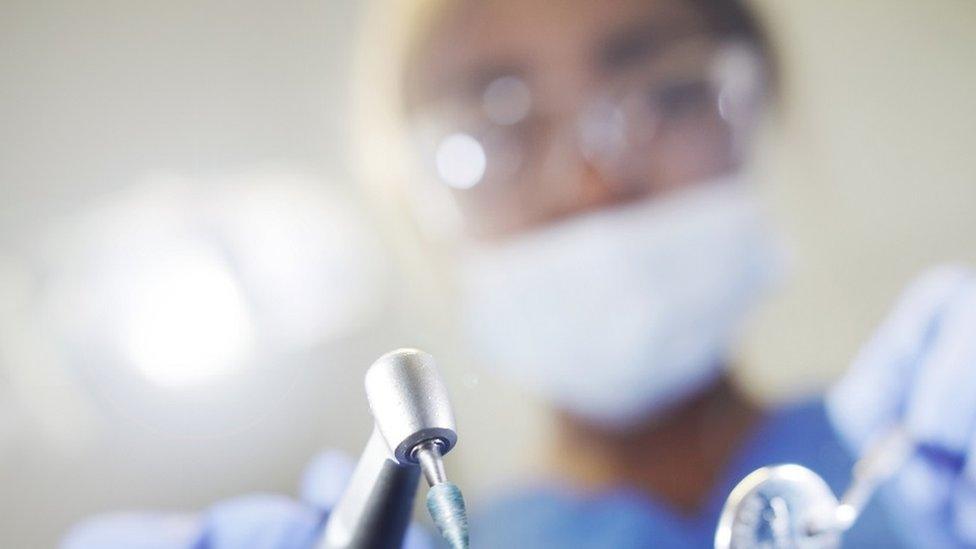Dentists in NI lose money on most NHS treatments, BDA says
- Published
- comments
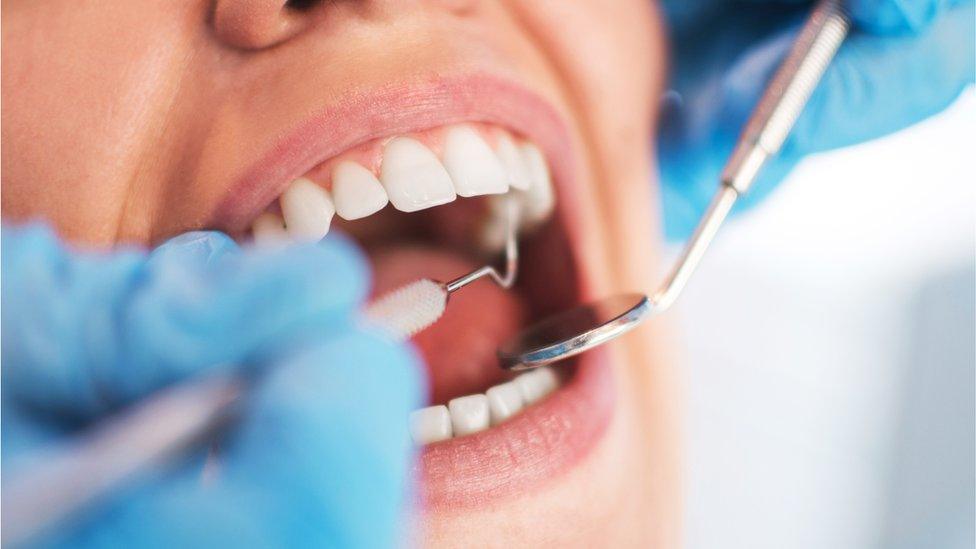
Dentists could be losing money on most active NHS treatments they perform, the British Dental Association (BDA) in Northern Ireland has said.
Preliminary figures suggest carrying out treatments like fillings, crowns and extractions for NHS patients can cost dentists money.
The Department of Health said it supported dentists with investment and uplifts in allowances and expenses.
Some dentists are going private because of the costs.
Other dentists maintaining NHS services are no longer taking on new patients.
In 2022, a BBC investigation found nine in 10 NHS dental practices across the UK were not accepting new adult patients for treatment under the health service.
The BDA in Northern Ireland has warned that without change, patients in need will be denied essential care.
Dental practices are paid set fees by the government for every treatment they provide to NHS patients.
But according to BDA NI, those fees are likely being outstripped by what it costs to provide the treatments - meaning dentists are making a loss.
It has warned that without more government funding, there could be no future for NHS dentistry.
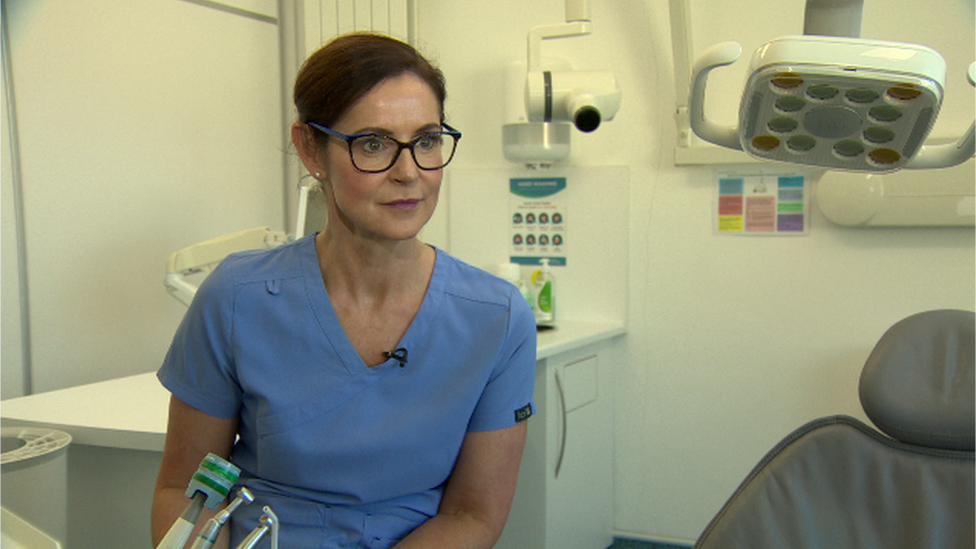
Ciara Gallagher is chairperson of the BDA's Northern Ireland Dental Practice Committee
Ciara Gallagher, chair of the BDA's Northern Ireland Dental Practice Committee, runs a dental practice in Downpatrick, County Down.
She told the BBC: "Everyone's talking about the cost of living crisis, I'm going to talk about a cost of providing care crisis.
"Within this building, all our materials have increased in price. Our staff wages have gone up, our electricity costs, our heating costs, they are all sky-rocketing.
"The increase in fees is not matching those increases in costs. What has happened is the fees have gone up a little bit, but we've come to this point where the cost to provide care is now more than we are being paid for that care."
Figures compiled from Dr Gallagher's practice, as well as five others, indicate the majority of active treatments performed are loss-making - a pattern she says is being felt by dentists across Northern Ireland.
These are preliminary figures. The BDA is now undertaking a wider study at practices across Northern Ireland and the rest of the UK.

What do the figures show?
According to the figures, for each single-tooth extraction that a dentist carries out under the NHS, the government currently pays the dental practice £19.47. But according to these figures, by the time the practice covers its own costs to actually carry out the procedure and pays the dentist, it's typically making a loss of £18.58.
Likewise, to perform one amalgam filling with one surface and the anaesthetic required, the government pays a dental practice £11.18.
But according to these figures, by the time that filling is performed, the practice will have typically lost £21.55.
To perform a root canal on an incisor or canine tooth, the government will pay a dental practice £59.94, but the practice will make a loss of £7.03.
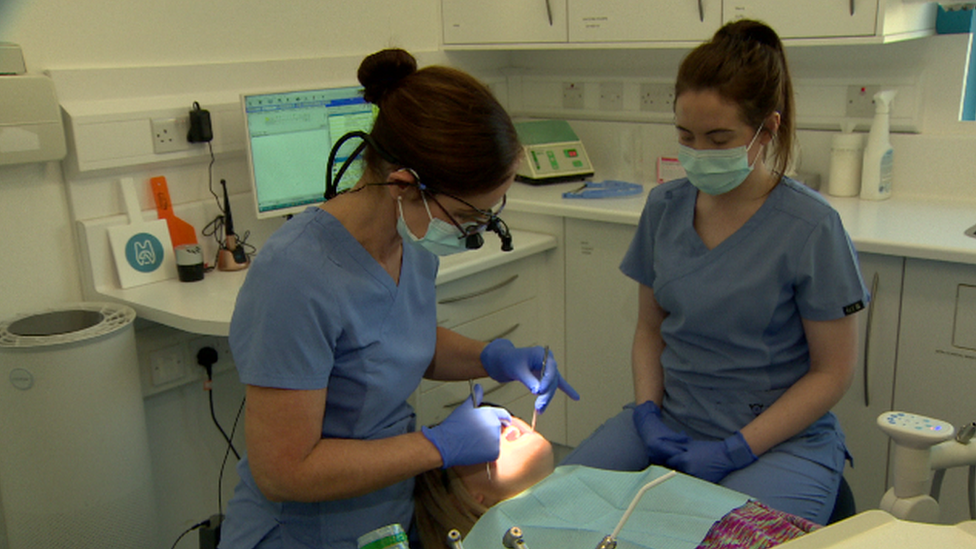
Dr Ciara Gallagher runs a dental practice in Downpatrick

"I don't know how to even begin to describe the despair of dentists who can't provide care," Dr Gallagher said.
"And let's talk about the patients, who are unable to get the care they want, unable to get their children registered because practices are unable to take on the losses that that will incur.
"Unless the funding covers the cost to provide care there is no future for NHS dentistry and that means there's no care for patients who need it the most."
The Department of Health said: "The dental remuneration package comprises of a number of elements, of which the item of service fee referred to is only one and makes up approximately 60% of general dental practitioners' earnings.
"The remaining 40% is made up of a range of other allowances and capitation based payments.
"Capitation payments are paid even if patients do not need treatment in any particular year."
The department referenced a £6.5m investment that had gone to dentists over the past two years, in helping to fund new technologies and things such as ventilation.
It also pointed to an uplift in fees which was put in place as a response to the Covid pandemic.
It added: "Whilst the department recognises the challenges that dental practices will be experiencing due to the cost of living increases, the pressures facing the department's budget are also considerable and without precedent, leading to difficult financial decisions having to be made to align funding with key priorities."
Related topics
- Published8 August 2022
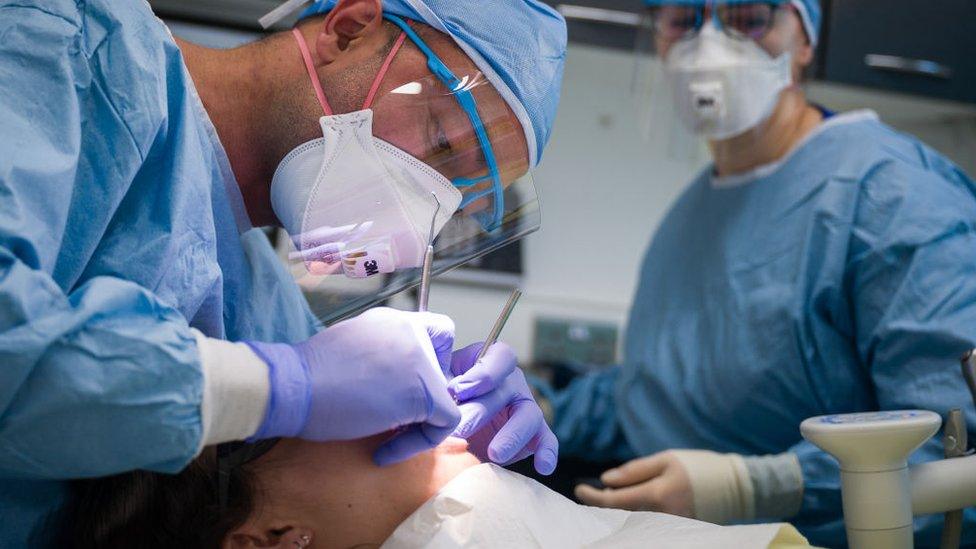
- Published29 June 2022
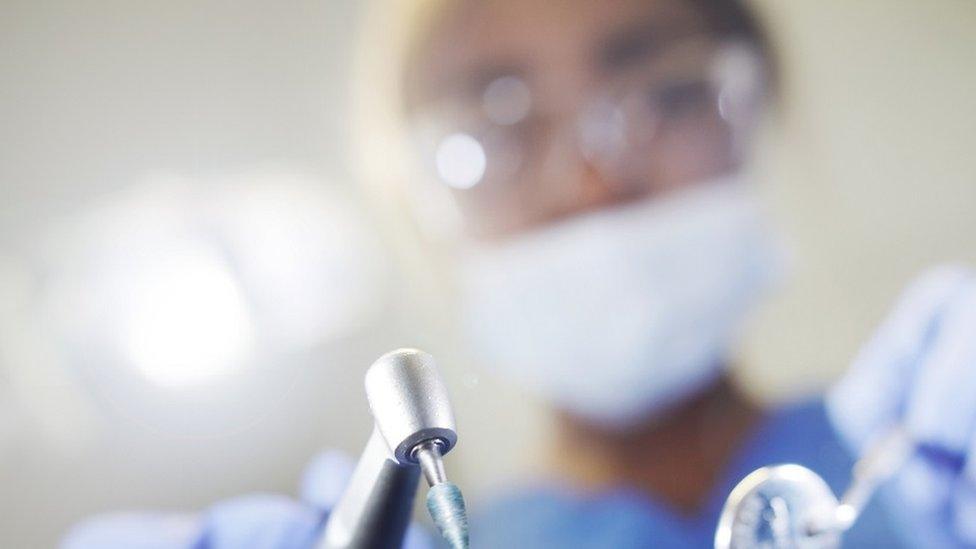
- Published12 December 2020
